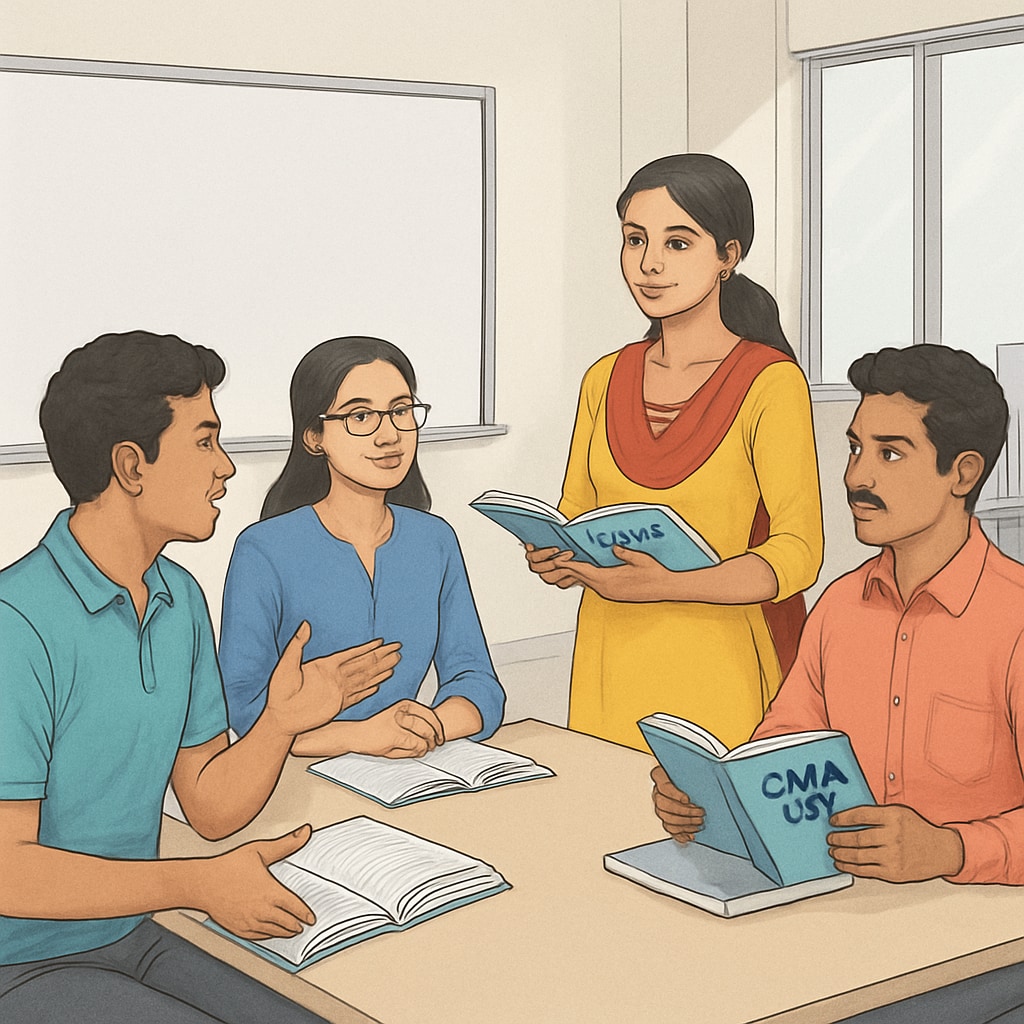The pursuit of CMA USA certification has gained traction among students and professionals in Kerala, India. This globally recognized credential in management accounting opens doors to international career opportunities and equips individuals with the expertise needed to thrive in dynamic business environments. However, navigating the challenges associated with this certification journey—from understanding international standards to balancing studies alongside professional commitments—requires strategic planning and robust support systems.
Why Kerala Students Are Turning to CMA USA Certification
Kerala, known for its high literacy rates and emphasis on education, has seen a rise in interest in international certifications like CMA USA (Certified Management Accountant). This qualification, offered by the Institute of Management Accountants (IMA), is tailored for professionals aiming to specialize in financial management and strategic decision-making. For Kerala students, the allure lies in its potential to bridge the gap between local education and global professional standards.
Several factors make CMA USA appealing:
- Global Recognition: CMA USA is acknowledged worldwide, enhancing employability in multinational companies.
- Skill Development: The certification covers core areas like financial planning, analysis, control, and decision support.
- Career Growth: CMA holders often secure leadership roles in finance and accounting.
As a result, many Kerala students are eager to embrace this certification to gain a competitive edge in the job market.

Challenges Faced by Kerala Students in Pursuing CMA USA
While the benefits of CMA USA are undeniable, Kerala students face unique challenges on their educational journey. For instance:
- Financial Constraints: The cost of enrolling in CMA USA programs, combined with exam fees and study materials, can be a significant hurdle for many.
- Access to Resources: Availability of quality coaching centers and study materials tailored to CMA USA is limited in some regions.
- Balancing Commitments: Many aspirants juggle full-time jobs or academic responsibilities alongside their CMA preparation.
Additionally, understanding the nuances of international accounting standards and adapting to the rigorous exam structure often requires dedicated mentorship and guidance.

The Role of Regional Learning Communities
To address these challenges, establishing regional learning communities in Kerala could be instrumental. These communities can serve as platforms for collaboration, mentorship, and resource sharing. Such initiatives might include:
- Organized study groups for peer-to-peer learning.
- Workshops and seminars led by CMA-certified professionals.
- Access to shared resources like practice exams and study guides.
For example, organizations or educational institutions in Kerala could partner with the IMA to create support networks that cater to the specific needs of local students. This collaborative approach can significantly enhance the success rate of CMA aspirants.
Certified Management Accountant on Wikipedia provides further insight into the scope and curriculum of the CMA USA program.
Future Implications for Kerala’s Education Landscape
The growing interest in CMA USA among Kerala students reflects broader shifts in the region’s education priorities. By incorporating professional certifications into K12 and higher education frameworks, Kerala’s institutions could foster a future-ready workforce equipped for global challenges.
As a result, this trend might inspire curriculum reforms, greater investment in international partnerships, and the emergence of hybrid learning models combining local expertise with global standards. For those aspiring to pursue CMA USA certification, this evolving educational landscape is both promising and transformative.
Management Accounting Overview on Britannica offers detailed information about the principles and practices underlying this field.
Conclusion
The journey of Kerala students pursuing CMA USA certification is a testament to their ambition and resilience. While challenges exist, the rewards—both personal and professional—are substantial. By fostering supportive learning communities and integrating global credentials into regional education systems, Kerala can position itself as a hub for international professional development. Students and professionals alike stand to benefit from this dynamic intersection of local talent and global expertise.
Readability guidance: This article uses concise paragraphs, active voice, and transitional phrases to ensure clarity. It incorporates strategic lists for summarizing key points, keeping the content engaging and digestible.


